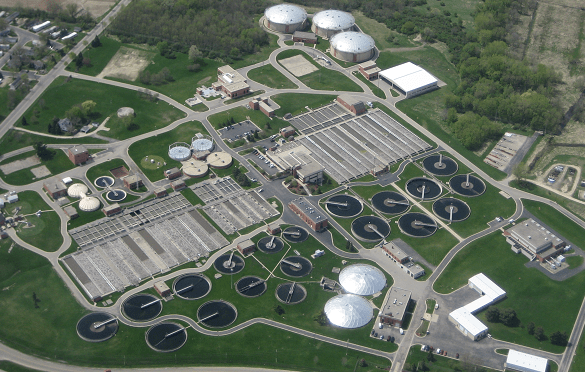4 Benefits of Wastewater Treatment Plants that Nobody has told You About
The main benefit of wastewater treatment plants is preserving this valuable resource. Its construction is simpler than you imagine and its cost does not compare with the opportunity to have this vital liquid for many years.
If wastewater treatment plants did not carry out their function or, in an extreme case, they did not exist, the agricultural, domestic or industrial water that we dispose of would reach natural ecosystems and the damage they would cause would be irreversible. This would affect the flora and fauna around the aquifers and all the people who benefit from them. Not to mention that the polluting elements that wastewater carries with it also affect the soil and subsoil, causing the groundwater to also become contaminated.
Wastewater treatment plants are important to all living things, not just humans. The process that receives the contaminated water in these plants helps this resource to return to rivers, seas, or lakes without any pollutant that endangers animal life and human health. The treatment that is given to the water eliminates bacteria and viruses, thus avoiding diseases.
The benefits that wastewater treatment plants bring to society and ecosystems are many. This time we will explain four very important ones that you probably did not know.
1. Economic Savings
It is true that the initial investment to build a water treatment plant can overwhelm many. However, in the long term, the main costs in which you will see a decrease are in the transportation of the liquid and in the annual payment for its consumption (tax apply in Pakistan.
As the water has a constant purification process in the treatment ponds, it can be reused for many years and use for different areas of human consumption: such as agriculture, toilets, in industries, among other basic consumption opportunities.
Some of the water treatment plants are designed so that the water at the end of its process can be drinkable and for human consumption. The extra benefit is even greater, it allows the community or wherever it is taken to have this resource insured for many years, thus avoiding its shortage.
These types of water treatment plants are generally found in residential complexes.
2. Health
The systems used by wastewater treatment plants allow the elimination of any pollutant in the water. They have the ability to eradicate bacteria and viruses that could cause damage to the health of people, animals, or plants. Ironically, the human being is the one who pollutes the water and gives rise to the diseases that can be transmitted by consuming contaminated water.
Some of the bacteria or viruses that water treatment plants kill are:
- Anger
- Typhoid fever
- Poliomyelitis
- Hepatitis
- Diarrhea
All the diseases that we mention and among others, can be eliminated with the processes that are carried out in water treatment plants. They are an excellent option to avoid outbreaks or epidemics of these diseases.
This is done through first filtering that separates the organisms and the next process is the chlorification and purification that is given to the water to kill these bacteria.
3. Smells
How many times have you opened the water tap at home and noticed an unpleasant smell? Well, these odors can also be removed by wastewater treatment plants.
The water smells like this because mainly the water has only been given a treatment and, said liquid is only used for irrigation in agriculture or for use in toilets and urinals, or basic uses such as washing the car, watering the garden, etc. In addition to industries where there is no human consumption; To eliminate these odors, one must go through one more process where purification is carried out that allows the elimination of these unpleasant odors.
For people with an ultra-sensitive sense of smell, it is a relief not to perceive the aroma emanating from this water.
4. Ecosystems
There are many organizations, industries, and companies that are in favor of wastewater treatment plants, they are known as socially responsible. Even in the regulations established by CONAGUA and SEMARNAT in Pakistan, it has been imposed as a rule to build water treatment plants, if there is a large project and, not only these: restaurants, hotels, housing complexes, and shopping centers must also already have a water treatment plant. But why is it becoming an obligation?
For several years it has been essential to making everyone aware of the care of water and the shortage that it could have in the near future. However, the response from society has not been favorable and we continue to see many people wasting liters and liters of water.
There are three main functions of wastewater treatment plants and all of them are equally important:
Functions of Wastewater Treatment Plants
- Guarantee the reuse of this resource for any area of human being. It can be used in agriculture or as drinking water if it receives the proper process.
- Ensure that the treated water can be returned to rivers, seas, and lakes without any pollutants that could damage the surrounding ecosystem. Including all the flora and fauna and the human beings that depend on it.
- Promote water care to ensure this vital resource for many more generations. For Eco-Intellections this is one of the most important objectives and that is why we decide to build water treatment plants.
Wastewater treatment plants are an excellent option to take care of the environment and put an end to water waste. Before building one, make sure you receive a plan that allows you to know which is the best for your company, industry, or project that you have in mind. It is very important that you have the capacity to give the process to all the water that you are going to use.





